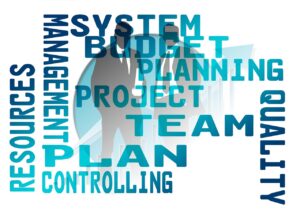As difficult as it is to imagine mistakes leaders make running their businesses, it is understandable Leaders are human first and foremost, and like any individuals, are prone to making mistakes.
Unfortunately, you cannot correct what you are unaware is causing churn in the business. There are certain best practices you must follow.
Here are15 common mistakes that leaders often make to help you evaluate your leadership so changes can be made where necessary.
Leaders Do Not Provide Clear Vision and Communication
A Lack of vision
Leaders that do not provide a clear and compelling vision for the business can leave their team without a sense of direction and purpose. This sets the stage for disorder and chaotic operation.
Some leaders are emphatic that they have a vision for their business. Ask them what it is, and they are unable to provide a convincing answer as they supposedly “have this vision in their heads”! A strong vision helps align and inspire the team towards a common goal.
Mistakes Leaders Make – Poor Communication
Similarly, if a leader does not communicate their expectations, or goals effectively to their team members. This can lead to confusion, misunderstandings, and a lack of alignment within the business.
Micromanage Employees
Some leaders tend to micromanage their employees, getting overly involved in the details of every task.
Not only can this demotivate and disempower team members, stifling creativity and hindering productivity, but it also puts a lot of unnecessary pressure on the leader.

Sometimes when a leader has issues with time management, it is related to micromanagement.
Fail to Delegate
Leaders who struggle with delegation often feel the need to do everything themselves. These are often the same leaders that tend to micromanage their employees.
This not only leads to burnout but also prevents team members from developing their skills and taking ownership of their work.
Present a Lack of Accountability
When leaders fail to take responsibility for their actions or decisions, it creates a culture where accountability is disregarded. Failing to take responsibility is directly linked to not having clear communication.
This can create a “he said”, “she said” environment which can erode trust within the team and hinder growth and progress.
Are Ineffective Decision-Makers
Leaders may make hasty decisions without considering all the relevant information or seeking input from their team. This can result in poor outcomes and missed opportunities.
A leader who makes inconsistent or contradictory decisions can create confusion and a lack of trust among their team members. It is important for leaders to be consistent and transparent in their decision-making processes.
Errors Leaders Make – Ignore Feedback
Ignoring or being dismissive of feedback from employees or other stakeholders cause leaders to miss out on valuable insights and perspectives. It is necessary to be open to feedback and willing to make necessary changes.
Neglect Personal Development
Leaders who stop investing in their own personal and professional growth may become stagnant and fail to adapt to changing circumstances. Continuous learning and self-improvement are important for effective leadership.
Unfortunately, many leaders are so tied up with running the business that they find it hard to create time for personal development such as trade shows, conferences, networking etc.
Lack Empathy
The inability to empathize with team members make many leaders struggle to build meaningful relationships with them to understand their needs and challenges – both business and personal.
This can lead to low morale and reduced productivity. Leaders who are unable to put themselves in others’ shoes will find it difficult to understand the needs, concerns, and motivations of their team members.
Empathy is a necessary element for fostering a positive and supportive work environment.
Fail to Recognize Achievements of Employees
Failing to acknowledge and appreciate the achievements and efforts of team members can demotivate them and diminish their sense of value within the organization.
Yes, they are being paid to do their jobs, but a tap on the back for a job well done will go a long way to motivating employees.
Poor Conflict Management

Leaders who avoid or mishandle conflicts within the team or business may create a toxic work environment. Conflicts should be addressed constructively while facilitating open communication and resolution.
Fail to adapt to change
In today’s fast-paced world, leaders must be adaptable and flexible. Those who resist change or are slow to adapt may hinder progress and miss out on opportunities for growth and innovation.
Sticking in the rut of “this is how we have always done this” is an attitude that can cause the company to lose employees who will seek greener pastures elsewhere.
Neglect to Build Relationships
Building strong relationships with team members, peers, and stakeholders is critical for effective leadership. Leaders who solely operate on a “boss – employee” platform neglect relationship-building.
Such leaders may struggle to gain trust, collaboration, and support from others.
Lack Self-Awareness
Leaders who lack self-awareness may overlook their own biases, weaknesses, or blind spots. This can hinder their ability to make informed decisions and lead authentically.
Overconfidence
While confidence is important for leadership, excessive overconfidence can lead to arrogance and a disregard for different perspectives. Leaders must maintain a balance between confidence and humility.
Poor Time Management
Leaders who struggle with time management may become overwhelmed, miss deadlines, or fail to prioritize effectively. This can result in a chaotic work environment and decrease productivity.
What causes this? Examples include poorly defined vision and goals, lack of delegation, poor communication and failing to adapt to technological change.
Do Not Develop Future Leaders
Succession planning is an important function of a successful business. Leaders who neglect to mentor and develop their team members for future leadership roles may hinder the long-term success and sustainability of the business.
Neglect Self-Care
Leaders who neglect their own health and well-being and do not prioritize self-care can suffer from burnout, which can negatively impact their effectiveness and decision-making abilities.
Conclusion – Mistakes Business Leaders Make
Remember that leadership is a continuous learning process, and the mistakes that leaders make and that even the best leaders make mistakes. It is important to reflect on these mistakes, learn from them, and strive to improve
Need assistance? Contact Us
References
vvvvv

